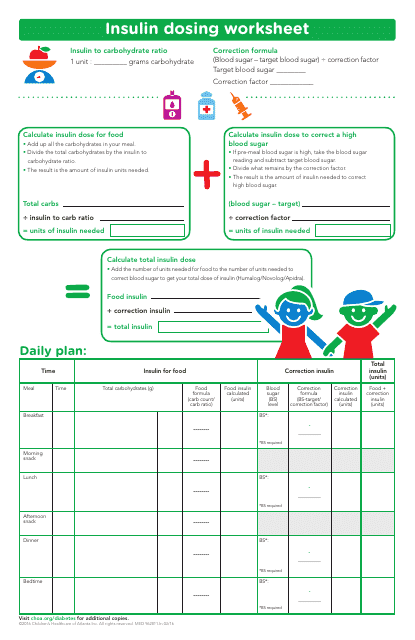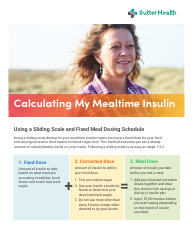Insulin Dosing Worksheet
An Insulin Dosing Worksheet is a document used by healthcare professionals and patients to calculate the correct dosage of insulin required to manage blood glucose levels for those with diabetes. The worksheet can help in making insulin dose adjustments based on specific factors, such as the patient's blood sugar readings before meals, the amount of carbohydrates consumed, and their level of physical activity. It's a critical tool for personalized insulin treatment, helping to ensure safe and effective diabetes management. It's important to remember that any changes to insulin dosing should be made under the supervision of a healthcare professional.
An insulin dosing worksheet is typically filed by a healthcare professional such as a nurse or a doctor. This document, used primarily in medical facilities like hospitals or clinics, is meant to help calculate the correct insulin dosage for diabetic patients based on various factors such as their blood sugar levels, carbohydrate intake, and physical activity. This worksheet is a critical part of diabetes management to ensure accurate and appropriate insulin administration and to avoid potential adverse effects.
FAQ
Q: What is an insulin dosing worksheet?
A: An insulin dosing worksheet is a guide created by healthcare professionals to help diabetic patients regulate the amount of insulin they need to take. The worksheet takes into account factors such as blood glucose levels, carbohydrate consumption, and physical activity.
Q: Why is insulin dosing important?
A: Insulin dosing is important because it helps maintain blood glucose levels in a safe range. Proper dosing can prevent health complications related to diabetes, such as hypoglycemia and hyperglycemia.
Q: Who needs an insulin dosing worksheet?
A: A person with diabetes who uses insulin therapy often needs an insulin dosing worksheet. This includes people with type 1 diabetes and some people with type 2 diabetes.
Q: How is the dosage of insulin determined?
A: Insulin dosage is determined based on the patient's blood sugar levels, physical activity, carbohydrate consumption, and other individual medical considerations. A healthcare professional analyses these factors to create personalized insulin dosing guidelines.





